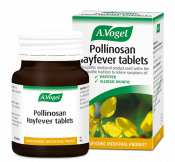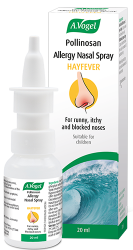Allergic rhinitis and earache
Allergic rhinitis is the result of an over-sensitive immune system which reacts harshly to allergens like pollen and animal dander. When it comes into contact with these things the immune system releases histamine in an attempt to rid itself of what it deems to be damaging particles. As a result, congestion, redness around the eyes and itchy eyes can all become problematic.
The Eustachian tube runs from the middle ear to the throat and is responsible for draining fluid and for maintaining equal air pressure in both ears. However, when histamine is released this leads to inflammation and so the Eustachian tube isn’t able to open fully to drain fluid. This can lead to blocked ears and occasionally sore ears as well.
What can you do?
Addressing congestion could help earache and, fortunately, there are a few ways you can do this at home.
Steam – this contains moisture and heat which loosens mucus to allow it to flow from the nose more easily. Steam also opens up the Eustachian tube so that fluid in the middle ear can drain away more easily. This means lots of baths, showers and maybe even a sauna or two are on the cards whilst in the depths of allergic rhinitis.
Water – this also helps to thin and loosen mucus so staying hydrated could, once again, address congestion.
However, there are a few other general tips that allergic rhinitis sufferers should consider trying too!
Diet – milk-based products, cashew nuts, walnuts, alcohol and caffeine all contain high levels of histamine which could increase the severity of allergic rhinitis symptoms. Therefore, it’s best to avoid these when suffering from the condition. However, there are a variety of food and drinks that are low in histamine that you could opt for instead including herbal teas and fresh fruit, vegetables, fish and meat.
Echinacea – the immune system may require a bit of assistance during a bout of allergic rhinitis as it can be a challenge to fight off allergens all the time. Therefore, as Echinacea is used to support the immune system this may prove beneficial.
How to avoid allergens
Avoiding the thing that triggers your allergic rhinitis could improve the issue however, this can be easier said than done so, to help you out, here are a few tips.
Animal dander – if you have pets, create pet-free zones in your home that may provide you with some refuge.
Dust mites – these hide in bedding so wash your sheets every week and, if possible, purchase allergy-proof bedding.
Mould spores – mould, as I’m sure you’re aware, stems from damp to prevent this use extractor fans when showering and cooking, and open your windows regularly to circulate fresh air.
Pollen – keep an eye on your local pollen count and then if you can avoid going outside when counts are high. Counts are usually lowest in the evening.
Herbal remedies
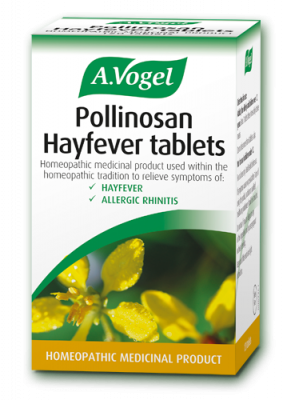
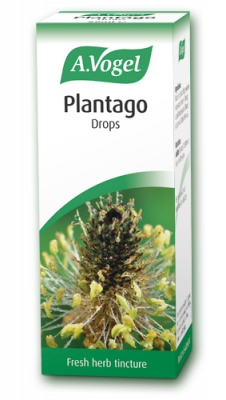 Pollinosan Hayfever Tablets can be used to address the various symptoms of allergic rhinitis including itchy eyes, congestion and inflammation. This should, in turn, ease sore ears.
Pollinosan Hayfever Tablets can be used to address the various symptoms of allergic rhinitis including itchy eyes, congestion and inflammation. This should, in turn, ease sore ears.
However, you may also wish to try Plantago which is often used to treat ear problems like earache. That’s because it can reduce inflammation and, additionally, it contains naturally occurring antibiotics.
Conventional treatments
Earache can also be a sign of infection so if the problem occurs without any other allergic rhinitis symptoms, or if the problem persists, it’s best to visit a doctor for some further advice. However, if the issue is caused by allergic rhinitis then a doctor may advise you to try antihistamines as these block the body’s release of histamine in an attempt to improve symptoms like inflammation and, therefore, earache.





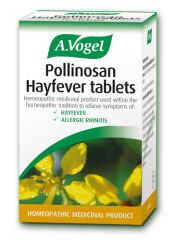 Looking for a solution to curb those hayfever symptoms such as itchy eyes, constant sneezing and congestion, then look no further than A.Vogel’s Pollinosan Hayfever tablets.
Looking for a solution to curb those hayfever symptoms such as itchy eyes, constant sneezing and congestion, then look no further than A.Vogel’s Pollinosan Hayfever tablets.
